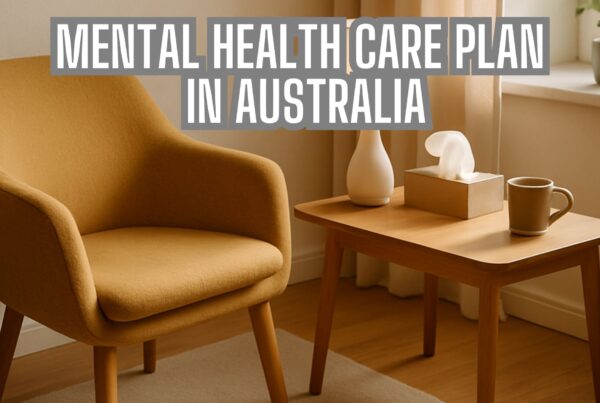Overcoming Self-Limiting Beliefs: A Comprehensive Guide
Self-limiting beliefs are the negative thoughts and assumptions we hold about ourselves and our abilities. These beliefs can hold us back from achieving our goals and living our best lives. It is important to recognize and challenge these beliefs in order to unlock our full potential.
Identifying Self-Limiting Beliefs
Every individual, at some point in their life, encounters beliefs that hinder their growth and potential. These self-limiting beliefs, as they’re often termed, act as barriers, preventing us from achieving what we’re truly capable of. They are deeply ingrained thoughts that have been shaped by a myriad of factors, including past experiences, societal norms, and the negative chatter that sometimes fills our minds. For instance, many of us have been held back by thoughts like “I’m not good enough,” “I can’t do this,” or “I don’t deserve success.” These beliefs, although they might seem insignificant, can have a profound impact on our actions and decisions.
Recognizing these self-limiting beliefs is the first and most crucial step towards overcoming them. It’s akin to shining a light on the shadows that have been lurking in the corners of our minds. By bringing them to the forefront, we can begin to understand their origins and the reasons behind their persistence. This awareness is the foundation upon which we can start to challenge these beliefs, replacing them with positive affirmations and a renewed sense of self-worth. Only by identifying these barriers can we hope to dismantle them and pave the way for a more empowered future.
Challenging Self-Limiting Beliefs
The journey of personal growth often requires us to confront and challenge the beliefs that have held us back. Once we’ve pinpointed our self-limiting beliefs, it’s essential to actively question their validity. This isn’t a mere exercise in self-doubt; it’s a rigorous process of introspection and self-examination. Every belief, especially the ones that limit us, should be put under the microscope. For instance, if a nagging voice in your head constantly whispers, “I’m not good enough,” it’s time to cross-examine that voice. Ask yourself, “What experiences or instances have led me to adopt this belief?” and “Are there moments in my life that prove the contrary?”
However, challenging these beliefs isn’t just about introspection; it’s also about seeking tangible evidence that refutes them. Our minds often cling to negative beliefs due to past experiences or perceived failures, but it’s crucial to also recognize our successes, no matter how small. If you’ve ever felt that you don’t deserve success, reflect on your achievements and the times you’ve overcome obstacles. By actively seeking evidence that contradicts our self-limiting beliefs and by continuously questioning their authenticity, we pave the way for a transformative change in our mindset, fostering a self-image that’s both positive and empowering.
Replacing Self-Limiting Beliefs with Positive Affirmations
The human mind is incredibly malleable, and with consistent effort, we can reshape our thought patterns. Once we’ve taken the bold step of challenging our self-limiting beliefs, it becomes imperative to fill that mental space with constructive and empowering thoughts. This is where positive affirmations come into play. These are not just feel-good phrases; they are powerful tools designed to counteract negative beliefs and reinforce a positive self-image. For instance, if you’ve been bogged down by the thought “I’m not good enough,” it’s essential to counteract it with a robust affirmation like “I am worthy and capable of achieving my goals.” Such affirmations serve as reminders of our inherent worth and potential.
However, the key to making positive affirmations work lies in repetition and genuine belief. Merely saying the words isn’t enough; one must internalize and genuinely believe in them. By consistently repeating these affirmations, we initiate a process of neural rewiring, gradually shifting our mindset from one of self-doubt to one of confidence and positivity. Over time, as we immerse ourselves in this practice, these affirmations become ingrained in our psyche, effectively replacing the self-limiting beliefs that once held us back. Through this transformative process, we equip ourselves with a renewed sense of purpose and a more optimistic outlook on our abilities and potential.
Taking Action to Overcome Self-Limiting Beliefs
Recognizing and challenging our self-limiting beliefs is undeniably crucial, but without concrete action, these realizations remain mere intellectual exercises. Taking action is the embodiment of our commitment to change. It’s about translating our newfound insights into tangible steps that propel us forward. This doesn’t mean we need to make monumental leaps overnight. Instead, it’s about setting realistic goals that align with our aspirations and breaking them down into small, achievable tasks. Each step, no matter how minor it may seem, serves as a testament to our capabilities. As we progress and achieve these micro-goals, we gather undeniable evidence that counters our previously held self-limiting beliefs.
Moreover, the act of taking consistent steps towards our goals does more than just prove our capabilities; it actively nurtures our confidence and self-esteem. Every accomplishment, every milestone reached, fortifies our belief in ourselves. This growing confidence, in turn, challenges and diminishes the power of our self-limiting beliefs. Over time, as we continue to act, achieve, and grow, these limiting beliefs are replaced by a robust sense of self-worth and a deep-seated belief in our potential. In essence, action is the bridge that connects self-awareness to self-realization, leading us from understanding our limitations to actively transcending them.
Seeking Support to Overcome Self-Limiting Beliefs
Overcoming self-limiting beliefs can be a challenging process, and it is important to seek support from friends, family, or a therapist. Talking about our self-limiting beliefs with others can help to gain perspective and receive validation and encouragement. Additionally, seeking support can help to hold us accountable and keep us motivated as we work to overcome our self-limiting beliefs.
Self-limiting beliefs can hold us back from achieving our goals and living our best lives. By identifying, challenging, and changing these beliefs, we can unlock our full potential and achieve our goals. Remember, it is important to seek support and take action in order to fully overcome self-limiting beliefs.
Release Hypnosis Melbourne Hypnotherapy
Since 2015, Lawrence Akers has been working under the name Release Hypnosis offering Hypnotherapy and ACT based work to the people of Melbourne or an online service. Based on St Kilda Rd, Release Hypnosis is an easy and convenient location to get to and accessible by the ANZAC station train and tram stop. Release Hypnosis can help with a wide range of presenting issues, and I offer a free 30 minute no obligation discovery call for those who are unsure if hypnotherapy is the right way forward for them.
Book Your FREE 30 Minute Consultation With Release Hypnosis NOW!
You may also like to read:
Discovering Purpose and Values: A Path to Mental Well-being
Can’t Visualise in Hypnosis? Here’s What You Can Do Instead.
Dealing with Financial Stress and Crisis: Finding Peace Amid Turbulence
What Is The Success Rate of Hypnosis?
Release Hypnosis Melbourne Hypnotherapy is accessible for people in: Abbotsford, Armadale, Albert Park, Balwyn, Bentleigh, Black Rock, Box Hill, Brighton, Brunswick, Bulleen, Bundoora, Camberwell, Canterbury, Carnegie, Caulfield, Chadstone, Cheltenham, Clayton, Coburg, Collingwood, Deer Park, Doncaster, Elsternwick, Eltham, Elwood, Epping, Essendon, Fairfield, Fitzroy, Footscray, Glen Iris, Glen Waverley, Glenhuntly, Greensborough, Hampton, Hawthorn, Heidelberg, Highet, Ivanhoe, Kew, Kooyong, Lalor, Laverton, Lower, Plenty, Macleod, Malvern, Middle Park, Moonee Ponds, Melbourne, Moorabbin, Mount Waverley, Murrumbeena, Northcote, Oakleigh, Ormond, Parkville, Pascoe Vale, Port Melbourne, Prahran, Preston, Richmond, Rosana, Sandringham, South Yarra, South Melbourne, Spotswood, St Albans, St Kilda, Surrey Hills, Templestowe, Thornbury, Toorak, Tullamarine, Williamstown, Yarraville, North Melbourne, Windsor, East Melbourne, Melbourne, Melbourne CBD, Melbourne 3004








